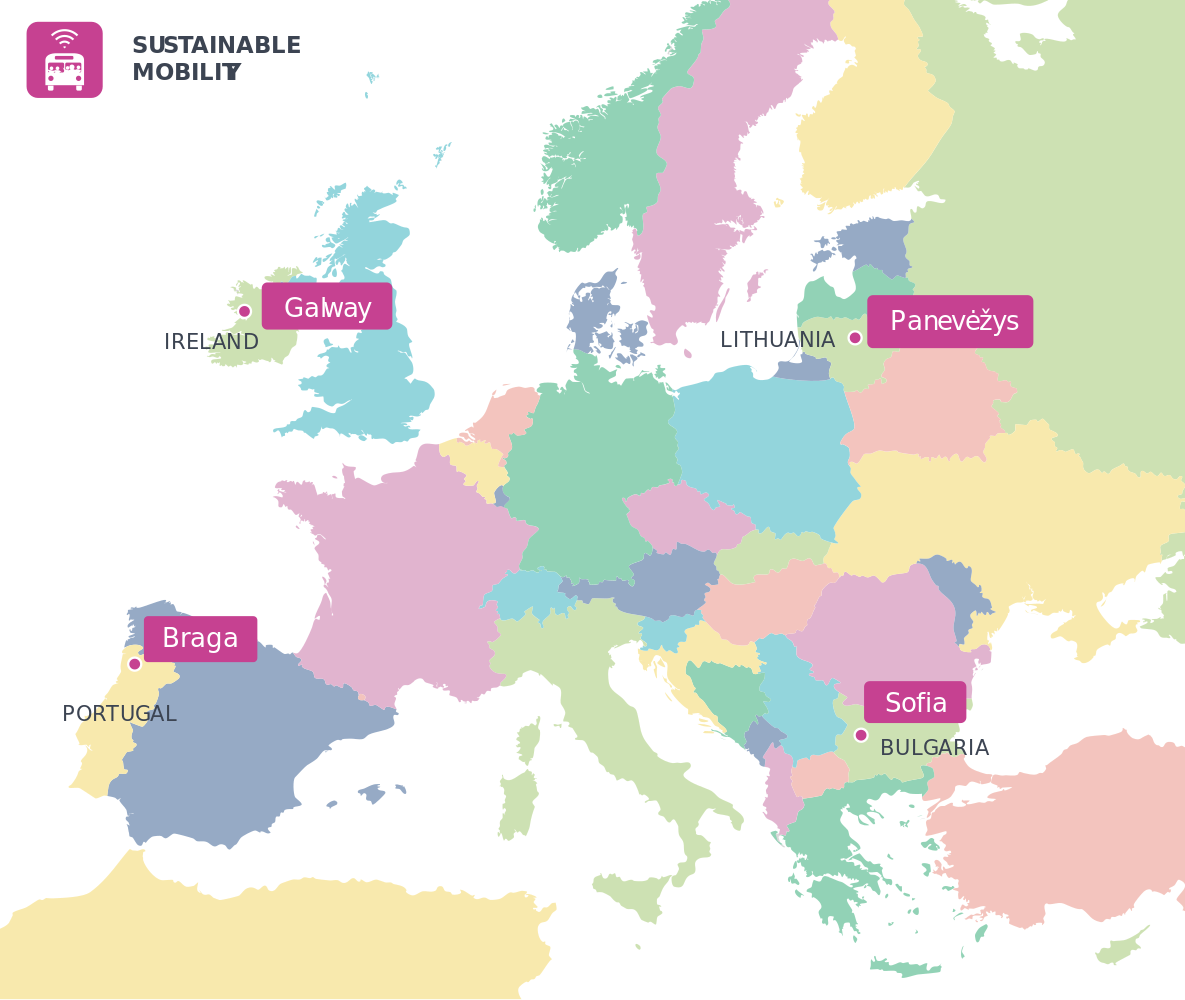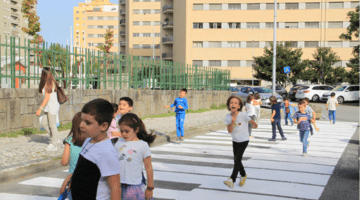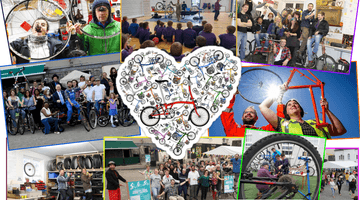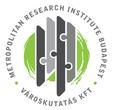Sustainable Mobility
Accelerating the shift to sustainable and smart mobility
Transport emissions represent around 25% of the EU's total greenhouse gas emissions and urban mobility has been singled out as a key focus area for the European Green Deal through its mission to have Europe be climate neutral by 2050. For that purpose, the European Commission published the European Urban Mobility Framework in 2021, proposing measures and initiatives for cities to meet the challenge related to making their mobility systems more sustainable.
Specific description of action
This stream focuses on cities and school mobility. SHARED GREEN DEAL will support the creation of ‘Mobility labs’ within schools located across sites that represent different levels of existing use of sustainable modes of mobility, and different levels of supportive policies.
Each mobility lab will be supported in developing context-specific solutions (e.g. games, exhibitions, education programs, mobility ambassadors) and raise awareness, support public and social acceptance to smart and sustainable mobility around schools. Each mobility lab will also formulate policy recommendations for travel to school strategies and thereby foster representation of young people in policymaking.
This work will directly involve citizens and especially young people in local policy-making around mobility, and in co-creating local solutions for sustainable and smart mobility. A central outcome of this experiment stream is a school' mobility strategy in each location.
Local Partners
In the beginning of 2023, four local partners were chosen to work together with SHARED GREEN DEAL on Sustainable Mobility. The four partners were chosen out of a total of 35 applicants for this stream.
- Environmental center for Administration and Technology (ECAT), Kaunas, Lithuania
- Sofia Development Association (SDA), project SOfiaGREEN, Sofia, Bulgaria
- Municipality of Braga, Braga, Portugal
- An Mheitheal Rothar, Galway, Ireland

Social sciences and humanities background
This stream considers mobility labs and co-creation in mobility planning as suitable concepts to mobilise the experiences, resources and ideas of citizens and other stakeholders in the creation of urban solutions (Torfing et al., 2016). Co-creation as a form of "open innovation" (Howalt & Schwarz 2010) is intended to bring together different expertise (from everyday experience, administrative knowledge or technical know-how) at eye level.
The work will draw on the Horizon 2020 projects SUNRISE, UPLIFT and Metamorphosis, which demonstrated the potential for children and young people to work together with stakeholders to co-create solutions and strategies for sustainable urban planning, including on mobility. Several other multidisciplinary mobility projects (for example, from the CIVITAS Initiative) will also provide practical experience with inclusive urban planning.
LEAD PARTNERS ON THE PRIORITY


CONTACT
For further details please contact co-leads Professor Chris Foulds (chris.foulds@aru.ac.uk) and Professor Rosie Robison (rosie.robison@aru.ac.uk).

This project has received funding from the European Union’s Horizon 2020 research and innovation program under grant agreement No 101036640. The sole responsibility for the content of this website lies with the SHARED GREEN DEAL HAS project and does not necessarily reflect the opinion of the European Union.





